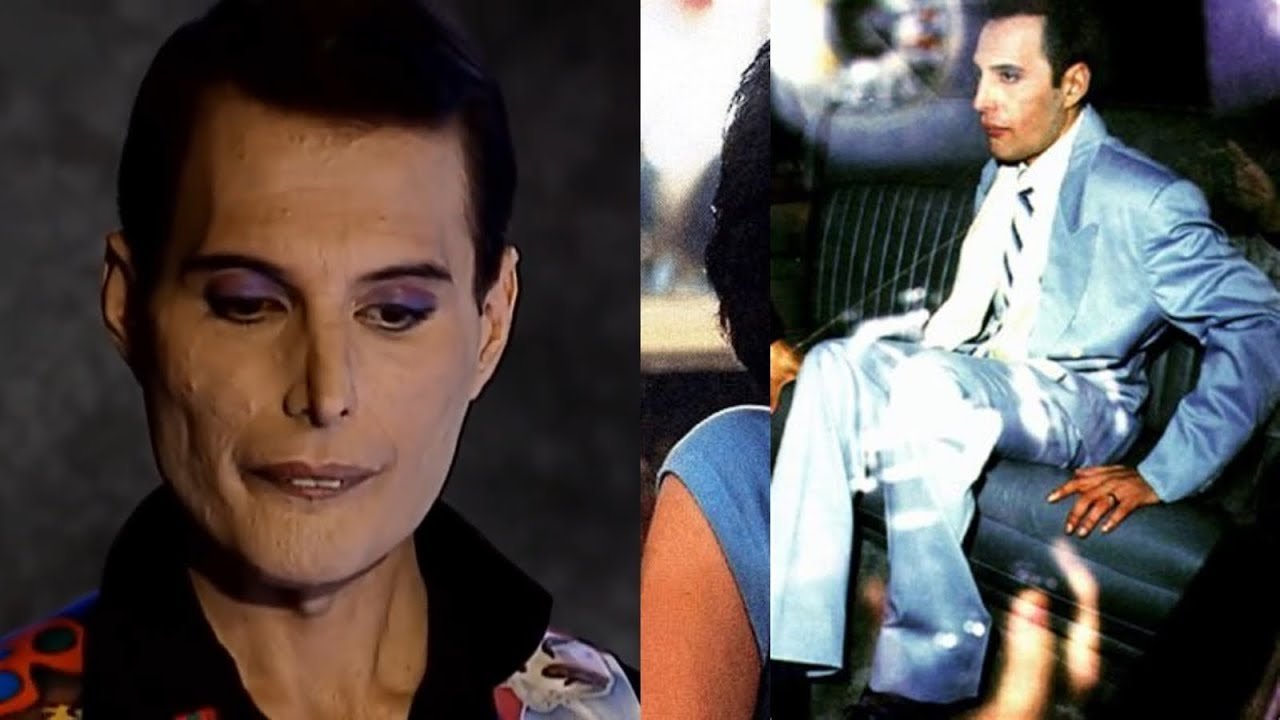For several reasons, February 18, 1990, turned out to be a very emotional day.
At the 11th Brit Awards at Earls Court, frontman of Queen Freddie Mercury made his last formal public appearance.
The other members of Queen were aware, in private, that their mysterious friend and bandmate was very sick, but at the time this information was not made public.
For years, there had been persistent rumors regarding Freddie’s health, especially in tabloids like The Sun, which claimed he had been tested for HIV/AIDS as early as 1986.
The Miracle’s 1989 album’s absence from tour raised concerns among fans, although Brian May subsequently said that even they were unaware of Freddie’s long-term illness.
May said, “We didn’t know actually what was wrong for a very long time, We never talked about it and it was a sort of unwritten law that we didn’t, because Freddie didn’t want to. He just told us that he wasn’t up to doing tours, and that’s as far as it went. Gradually, I suppose in the last year and a bit, it became obvious what the problem was, or at least fairly obvious. We didn’t know for sure.”
Queen made an appearance to receive the award for “Outstanding Contribution to British Music” in February 1990. Freddie Mercury seemed abnormally quiet and somewhat haggard.
That evening, Brian May addressed on behalf of Queen and thanked the British for the introduction by Terry Ellis, co-founder of Chrysalis, and the video testimonial that included David Bowie, Phil Collins, and other celebrities.
Freddie made what would turn out to be his last public appearance, leaning slightly toward the microphone to say: “Thank you … goodnight.”
For the remainder of his life, Freddie maintained his secret, but on November 22, 1991, he made an official announcement confirming his diagnosis. He died a little more than a day later.
A new interview with Freddie Mercury’s friend and former Daily Express writer David Wigg provides further details on why the Queen singer concealed his illness for such a long time.
Speaking as a part of the recently released BBC documentary Freddie Mercury: A Life in Ten Pictures, Wigg claimed to have had an “off-the-record” conversation with Mercury in September 1987 regarding his condition.
David stated: “I noticed he had lost weight and he had a mark on his cheek that was apparently one of those marks (Kaposi’s sarcoma) you can get when you get HIV.”
Freddie said, “I have almost become a nun. I thought sex was very important to me and I lived for sex and now I’ve completely gone the other way It’s frightened me to death. I’ve stopped having sex.”
“David, this is very difficult,” Freddie reportedly responded as David pushed the Queen star, according to David, “I will tell you as a friend but you have to promise you will not put this in our article.”
Afterwards, David disclosed in his interview: “So I said, ‘Right, you are saying to me you have had a test?’ (And Freddie said) ‘Yes. And I am HIV.'”
The reporter continued by saying: “The secret had to be kept because he was still hoping that there could still be some kind of a cure or the drugs he was taking for this illness would help him get through it.”
David said, “He put on a brave act to all of his friends but inwardly, He must have been very scared, there is a time bomb about to go off if you don’t get a cure, isn’t there?”
Elton John has already talked about Freddie Mercury’s extraordinary spirit up to his passing.
Elton revealed, “He was too frail to get out of bed, he was losing his sight, his body was covered in Karposi’s sarcoma lesions, and yet he was still definitely Freddie, gossiping away, completely outrageous.”
“(Freddie would say) ‘Have you heard Mrs Bowie’s new record, dear? What does she think she’s doing?'”
Elton John said, “I couldn’t work out whether he didn’t realize how close to death he was or if he knew perfectly well but was determined not to let what was happening to him stop him being himself. Either way, I thought he was incredible.”
